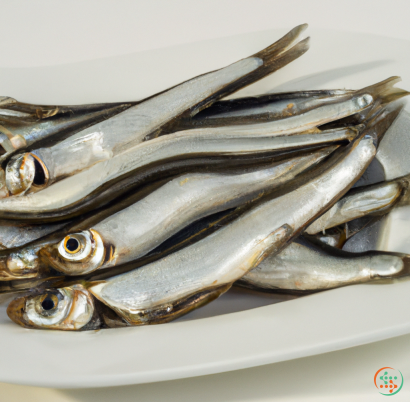Catfish
A catfish is an individual who creates a false identity online by using someone else's pictures, details and other pieces of information, and then engages in conversations with people in order to establish a false sense of intimacy. This is often done for a variety of reasons, including financial gains, revenge, and for personal enjoyment.
The term ‘catfish’ originates from the 2010 documentary film of the same name which follows the story of Nev Schulman (a photographer from New York), who is corresponding with Abbie, a woman he has developed an online relationship with, despite actually never meeting her. As his relationship with Abbie develops he becomes suspicious about her authenticity, and so begins a journey to discover who she really is. It was during this time that Schulman discovered that Abbie was actually another young man taking on a different identity online.
Although the term ‘catfish’ originally came from the 2010 documentary film it has now become a term used to describe a person who creates a false online identity. Catfishers are often people who have little or no real-life friends, and the false persona they portray in a conversation gives them a way of connecting to someone without revealing their true identity.
In some cases, the individual engaging in catfishing will invite the person they are talking too to a face to face meeting, however normally this is done in an attempt to protect their own identity and/or gain something from it. For example, in most cases a catfisher will start off the conversation by claiming to be an attractive person in an attempt to gain access to financial resources, undeserved admiration, and other advantages. This is particularly common among scammers from certain countries, such as Nigeria, who use this method to acquire money from unsuspecting individuals.
Although the majority of catfishing does involve a person lying about their identity, this is not always the case. Some individuals might have an authentic online presence but be influenced or driven by a hidden agenda. This is known as ‘doxxing’, which is a form of online harassment where personal information is collected and shared online without people’s consent.
In today’s digital age, it is becoming increasingly difficult to know what’s real online and what’s not. With the marvel of modern technology it only takes a few clicks to find someone’s name, phone number, address, and social media accounts, making it much easier to be misled by an individual posing as someone they are not.
It is important to note that each person does not engage in catfishing for the same reason. Some may do it for financial gains, some for revenge and some for personal pleasure. It’s therefore very difficult to know exactly why someone is creating a false identity. That being said, some signs to look out for include:
- Unusable pictures - rather than their own pictures, a catfisher may use stock photos or pictures taken from the internet
- Unusual language - the person may use language that consistently fails to make sense or sounds incoherent
- Limited information - the individual will usually provide very little information about themselves, or they may provide conflicting information
- Awkward interactions - they might ask a lot of questions, or make uncomfortable requests
When it comes to responding to someone you think might me a catfisher it is important to remain vigilant and never give away any personal information such as credit card numbers or passwords. They may also become hostile and angry if their lies are exposed, so it is best to end the conversation immediately and delete any messages sent.
Catfishing can be a dangerous and potentially devastating activity, and it is important to know how to spot the signs in order to ensure that you stay safe online. Being aware and extra cautious may help you to avoid being deceived by someone pretending to be someone they are not.
Catfishes may not be everyone’s favorite dinner plate food, but they are an important source of protein for many populations around the world. It is estimated that over 1 billion pounds of catfish are consumed each year in the U.S. alone. This article will explore the life cycle of a catfish, from its creation to its arrival on a dinner plate.
The Creation of a Catfish
A catfish begins life in a hatchery where fertilized eggs are incubated and then hatched into fry. These fry are transferred to nurseries where they are reared in ponds or tanks for up to two weeks before being moved to larger rearing ponds. During the nursery phase, the hatchlings will develop their dorsal spines, barbels, caudal fin (tail fin), and adipose fin which are all specific to the catfish species.
Catfish juveniles mature quickly, reaching a size of three to six inches in just a few short weeks. They are usually stocked into lakes, rivers, and streams, or rearing ponds for further growth and development. In the wild, the fry feed on insect larvae, plankton, and some vegetation. In ponds and hatcheries, catfish farmers supplement the natural feed sources with commercial fish feed.
Catfish growers be able to grow more fish, faster, and with a more consistent size when using carefully monitored, commercially prepared feeds that provide fish with a balanced blend of protein, carbohydrates, vitamins, and minerals. As catfish reach maturity, they consume mostly aquatic insects, crayfish, worms, small fish, and other aquatic animals, as well as decomposing matter.
Harvest and Processing of Catfish
When it is time to harvest the catfish, they are pulled from the water one at a time. The harvest crew typically use seines, trawls, and electro-fishing gear to capture the fish. Once the fish are in hand, workers size them, inspect them, and pack them in special baskets and trays for transport to the processing plant.
At the processing plant, catfish are graded for size, color, and texture and inspected for quality assurance. Poor quality fish are removed from the system and discarded. The remaining fish are killed, gutted, cleaned, and packaged. At this stage, the commercial grade catfish is divided into various physical cuts such as heads, tails, liver and roe for use as a variety of products for food service and retail stores.
Transportation and Delivery of Catfish
Once the fish have been processed, they must be quickly shipped out through distribution centers to ensure they can be served while they are still fresh. For the most part, the catfish is cooled and packed in styrofoam boxes filled with ice before being sent to distributors, restaurants, and retail stores.
A majority of the foods arriving to destination stores are held in chilled warehouses until they are ready to be shipped on to suppliers. During this step, temperature, humidity, and other environmental conditions like light and air quality are closely monitored to ensure the fish remains in top condition.
Arrival At Dinner Plate
Most consumers purchase catfish from large chain stores or seafood markets since it is a popular and accessible item. For restaurants, restaurants purchase the whole frozen fish from trusted suppliers. These suppliers make sure the fish is frozen in accordance to FDA regulations to ensure the highest possible level of food safety and quality.
Once at the restaurant, the chefs prepare the fish to order. Depending on the type of dish being made, the fish can be pan fried, deep fried, baked, or grilled. If catfish nuggets or patties are being made, the fish will go through a breading or battering process before being fried.
Is Catfish Healthy?
Catfish is a popular source of nutrition and is full of many essential vitamins, minerals, and healthy fats. It is high in protein, low in both fat and saturated fat, and contains important vitamins and minerals such as Omega-3 fatty acids, Vitamin A, Niacin, Iron, Zinc, and Potassium.
When purchased from a reputable source and cooked properly, catfish can be a healthy meal option for those looking for multiple health benefits in one delicious dish.
Conclusion
Catfish is a fresh and delicious fish that can be found in many restaurant and grocery stores around the world. From its creation in a hatchery, to its transportation to a processing plant and finally its arrival on a dinner plate, a catfish goes through an intricate journey before being enjoyed as a tasty meal. But, not only is catfish a tasty food, it is also nutritious, with some studies suggesting it is beneficial to cardiovascular health.
| Vitamin A | 0.015 mg | |
| Vitamin C | 0.8 mg | |
| Vitamin B1 | 0.23 mg | |
| Vitamin B2 | 0.07 mg | |
| Vitamin B3 | 0.00239 grams | |
| Vitamin B5 | 0.91 mg | |
| Vitamin B6 | 0.11 mg | |
| Vitamin B9 | 0.01 mg | |
| Vitamin B12 | 0.0029 mg |
| Calcium | 0.011 grams |
Daily Value 1.3 g
|
| Iron | 0.35 mg |
Daily Value 0.018 g
|
| Magnesium | 0.028 grams |
Daily Value 0.4 g
|
| Phosphorus | 0.304 grams |
Daily Value 1.25 g
|
| Potassium | 0.419 grams |
Daily Value 4.7 g
|
| Sodium | 0.05 grams |
Daily Value 2.3 g
|
| Zinc | 0.61 mg |
Daily Value 0.011 g
|
| Copper | 0.04 mg |
Daily Value 0.9 mg
|
| Manganese | 0.03 mg |
Daily Value 0.0023 g
|
| Selenium | 0.0143 mg |
Daily Value 0.055 mg
|
| Tryptophan | 0.207 grams | |
| Threonine | 0.81 grams | |
| Isoleucine | 0.851 grams | |
| Leucine | 1.502 grams | |
| Lysine | 1.697 grams | |
| Methionine | 0.547 grams | |
| Cystine | 0.198 grams | |
| Phenylalanine | 0.721 grams | |
| Tyrosine | 0.624 grams | |
| Valine | 0.952 grams | |
| Arginine | 1.106 grams | |
| Histidine | 0.544 grams | |
| Alanine | 1.117 grams | |
| Aspartic Acid | 1.892 grams | |
| Glutamic Acid | 2.758 grams | |
| Glycine | 0.887 grams | |
| Proline | 0.653 grams | |
| Serine | 0.754 grams |
| Total Sugars | 0.131141 grams |
per 100g
|
| Myristic acid (14:0) | 0.08 grams |
|
| Palmitic acid (16:0) | 0.48 grams |
|
| Stearic acid (18:0) | 0.12 grams |
|
| Total Saturated fatty acids: | 0.68 g | |
| Oleic acid (18:1) | 0.77 grams |
|
| Palmitoleic acid (16:1) | 0.25 grams |
|
| Gadoleic acid (20:1) | 0.03 grams |
|
| Total Monounsaturated fatty acids: | 1.05 g | |
| Omega-3 Timnodonic acid (20:5) | 0.1 grams |
|
| Linolenic acid (18:3) | 0.1 grams |
|
| Linoleic acid (18:2) | 0.14 grams |
|
| Total Polyunsaturated fatty acids: | 0.34 g | |
| Cholesterol | 0.07 grams |
|
| Total Sterols: | 0.07 g | |







